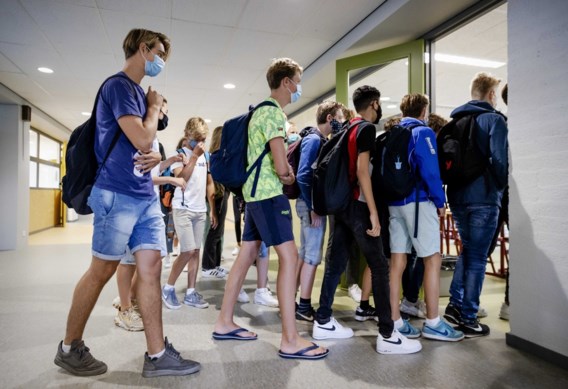From next week, schools will reopen under the same conditions as before the Easter holidays, meaning not all pupils will be able to physically attend class full-time yet, the education sector decided on Monday.
Despite the four-week "Easter pause" implemented by the Consultative Committee at the end of March, the coronavirus figures in Belgium have not dropped low enough for a full reopening of schools, according to the education sector.
"Kindergartens, primary schools, and the first grade of secondary education (pupils aged 13-14) will be able to go to school full-time from 19 April," Flemish Education Minister Ben Weyts said on VRT News.
However, pupils in the second and third grades of secondary education (aged 15-18) will still only be able to physically attend school half-time, with half-time distance learning still in place - the same situation as before the Easter holidays.
For pupils in special-needs secondary education and part-time vocational secondary education, full-time contact learning will be possible. "We always have the most vulnerable in mind," he added.
Related News
- Education sector discusses full-time reopening of schools next week
- Saliva tests in schools: pilot project abandoned in favour of self-tests
- Framework for test events should be set by Consultative Committee, says Vandenbroucke
As soon as the opportunity arises to make contact education also possible again for the pupils in the second and third grade in secondary school, the sector wants to make it possible.
"We are going to keep our finger on the pulse," Weyts said, adding that he would have prefered a full-time reopening for all pupils, but that the coronavirus figures do not permit it.
Mess halls, however, can be opened again, but the aim remains to organise lunch breaks per class bubble as much as possible, according to him.
Additionally, recess can be organised for several class bubbles at the same time again, but it remains "advisable" to keep class groups separated as much as possible.
Indoor day trips with a class bubble, such as to a museum, for example, will also be permitted again.
The face mask obligation for children in the fifth and sixth year of primary school (children aged 10-12) will remain in place.
"There are some positive points but also some negative points to this proposal," Weyts said, who pointed to the fact that schools in several neighbouring countries will remain closed.
"We are really going to continue to argue and work for the full-time reopening for all pupils," he said. "A positive aspect of our current proposal is that a large proportion of the pupils can already return to the classroom."
On Wednesday, the Consultative Committee will make a final decision.
Maïthé Chini
The Brussels Times

